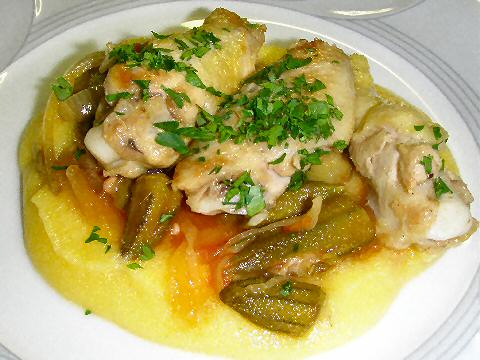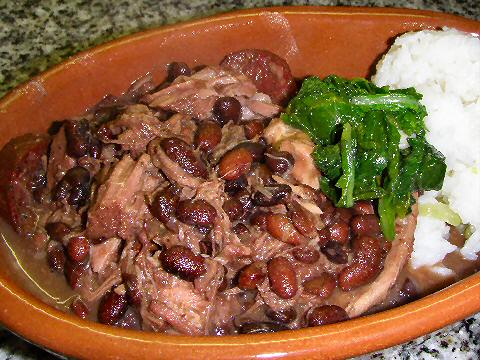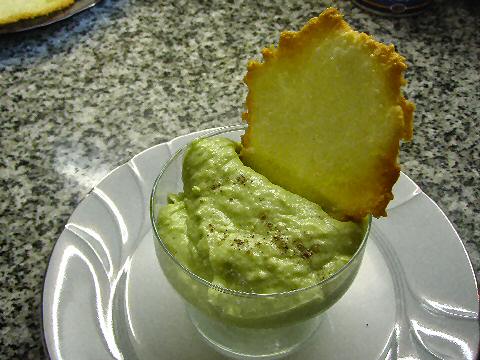I speak: Portuguese, German, French, English, Spanish, Italian, Esperanto, some Russian; I read: Swedish, Dutch, Latin and Greek (but with the dictionary right next to me); I understand some German dialects; I studied the grammar of: Hungarian, Arabic, Sanskrit, Lithuanian, Polish, Tupi, Hebrew, Japanese, Czech, Finnish, Danish; I dabbled in others. But all at a very basic level. And I think that studying the spirit and the mechanism of other languages helps a great deal in the deeper understanding of the national language [of Brazil]. In general, however, I studied for pleasure, desire, distraction.”
– João Guimarães Rosa, Novelist
Buenos Aires – Okay, the man was literate. In more than one language. He is also considered, by many, if not most of those in a position to say such things to have been Brazil’s greatest 20th century novelist. How could we not celebrate his 100th birthday here at Casa SaltShaker? And, so we did – with a tribute to the cuisine of his home region of Minas Gerais, Brazil.
It turned out to be an odd, and strangely not well attended weekend. We’d planned a Thursday and Friday evening, having planned the Thursday around a visiting acquaintance from the States who had to leave on Friday, plus a private dinner planned for Saturday that later got changed to Monday. We had nine reservations for each night, not uncommon up until the last minute, we almost always get calls from locals or hotels the last day or so – Wednesday afternoon, two people cancelled for Thursday, and I awoke that morning to find another e-mail from a party of four cancelling as well, leaving us with only three people, my acquaintance and her two friends – leaving us to cancel on them. Friday, one person cancelled mid-day, but a young lady called in the afternoon and filled that spot. However, four locals, two women friends and a couple, separate reservations, simply never showed up for dinner after confirming (and never responded to phone messages or e-mail after the fact). So, five people sat down to dinner on Friday, and, I think, had a good time, even if it wasn’t quite the fiesta they expected. And, of course, on our end, it sucked financially, and after last weekend with two cancellations an hour before dinner and six no shows out of twenty-four reservations (virtually all porteños, and mostly women, interestingly – and something that several local friends told me was likely to start happening now that we’re getting more local press and seeing more local customers – okay, you told me so), let’s just say the piggy bank isn’t looking happy.
We started out with a simple Salada de Chuchu, or Chayote Salad, the vegetable (or is it a fruit?) peeled, sliced, simmered in salted water until just starting to soften and then chilled and dressed with a vinaigrette made with white wine vinegar, extra virgin olive oil, garlic, onion, parsley, salt and pepper. The spices really highlight the sweetness of the chayote and it was a very refreshing salad. From there, we moved on to a Caldo de Peixe, a fish soup in coconut broth – the broth made by simmering together coconut milk, celery, yucca root, ginger, oregano, mint and bay leaf for about 40 minutes, then pureeing it, straining it through a fine sieve, and then adding diced fennel and tomatoes, minced hot peppers, and some diced fish (I used boga, a very flavorful local river fish). Seasoned it at the end with salt and some chopped mint and oregano.

This was my favorite dish, Frango com Quiabo e Angu, generally translated as “Chicken with Okra and Mush”, the latter, however, being soft polenta. I saw a variety of versions, using everything from whole chicken breasts to thighs, to chicken feet. I decided to go with wing sections, which I marinated in lime juice, salt and black pepper for a couple of hours, then sauteed them over high heat in a mix of peanut oil and butter. The polenta was just simply prepared, and finished with butter and salt. The vegetables were a mix of okra (no fresh available at this time of year, but the Middle Eastern markets carry okra that’s preserved in brine, so I soaked them in fresh water for a little while, and was careful about how much salt I added at the end), along with crushed plum tomatoes, and thinly sliced onion all simmered together in a little bit of chicken stock, and a little parsley to garnish the dish.

This dish generated a bit of both pre and post dinner controversy. I received, amazingly enough, half a dozen recipes from various readers of SaltShaker, all offering me their advice on how Feijoada, arguably Brazil’s national dish, should be properly made. Not one of them agreed with the other, and online and cookbook research merely extended the disagreement, as has my past experience eating the dish, not one version of which has been the same as another. In the end, I settled on a simple stew of mixed meats and black beans (despite admonitions to use either white or brown or red beans), the latter soaked in water overnight, then in a big stockpot I cooked up some diced bacon, beef rib roast, spare-ribs, and cured chorizos with onions and celery, until the meat was lightly browned. The I added the beans and a bouquet garni along with water to cover, brought it all to a boil and then turned the heat down low and let it simmer for about six hours – which generated the post-dinner controversy, well, really just from Henry, who insists that in his experience of feijoada, the meat should not be falling apart tender, and that also I should have had about 2:1 beans to meat rather than the other way around (on that, he’s probably right for the traditional dish, but then, he’s from a rice and beans kind of place where meat is the accent, I’m from the reverse). I served the stew up with white rice flavored with mild peppers, some sauteed turnip greens with garlic, and a side of hot sauce made with coarsely blended rocoto peppers, red onion, garlic, lemon juice and salt.

I was intrigued by this classic dessert, just because it’s so out of the ordinary. Crema de Abacate, or Avocado Cream – turns out its really, really good! I mashed together six ripe avocados, the juice of half a dozen limes, and a half cup each of confectioner’s sugar, shredded coconut, and cream. I decided it wasn’t smooth enough so I used the hand-blender on it to get it nice and smooth. I also decided it needed something to go with it, and a coconut tuile cookie sounded just about right – and, amazingly enough, the infamous Gordon Ramsey has a great recipe for coconut tuiles that fit just what I was looking for – 50 grams butter, 85 grams finely ground coconut, 85 grams confectioner’s sugar, 25 grams flour, and 2 egg whites, all mixed together, spread thin on a silpat and baked until golden brown on the edges. A later thought would have been to make them larger and turn them into a little cup to fill with the avocado cream. Oh, and just for a bit of “garnish” I dusted the top of each dish with a pinch of ground cardamom.
Everything looks so good. I like the idea of the chicken and okra. I’d like to have a taste of the feijoada. The dessert looks to die for.
Paz
All of the dishes look great — the no-show guests missed a fantastic meal, I’m sure.
I will probably get flamed for saying this, but I think the problem you are experiencing with the last minute cancellations (or even worse, the no-shows) stems from the narcissism that seems to be a feature of the typical porteño personality. Or more precisely, the porteña personality. It is not “politically correct” to do so, but if I were you I would charge a non-refundable deposit before accepting reservations from porteñas or from concierges at fancy hotels (the latter because they tend to book reservations at several restaurants, then let the hotel guest choose at the last minute).
I don’t think deposits would be necessary for most other guests. I would bet that ex-pats and tourists who book on their own at least have a sense of what last-minute cancellations or no-shows must do to a small restaurant like yours (assuming they have looked at the website and realize what sort of a restaurant it is).
Dining at Casa Saltshaker is similar to accepting an invitation to a small dinner party. Not bothering to show up at a dinner party, after the host has made all the arrangements and the other guests are expecting you, would appallingly rude. Most ex-pats and tourists who book at Casa Saltshaker probably recognize that, and would at the very least feel ashamed or guilty if they canceled at the last minute for no good reason, or if they just failed to show up. But this is a culture “sin vergüenza” — shame just isn’t part of the average porteño’s emotional repertoire!
Here’s my recommendation: insist on a 30-peso deposit made to your PayPal account, non-refundable if cancellation occurs within 24 hours before the scheduled dinner. You will hear some bitching, but that’s to be expected. Probably if the same well-heeled ladies were no-shows for appointments with their cosmetic surgeon, they would still have to pay for the appointments, so a non-refundable deposit is probably not an entirely foreign concept to most upper-class porteñas. 😉
[…] up a delightful little fish soup, quite different from the coconut fish soup that is also a Portuguese influenced fusion dish from our Brazilian dinner a week earlier. This one […]
[…] in Brazilian cooking. First up, a feijoada, the national dish of Brazil. You might remember my first attempt at the dish – let’s just say that while I may have been in the ballpark, it’s likely I […]
[…] avocado cream tartlet in a coconut butter cookie […]
[…] Pie? The base, a coconut crust, topped with a layer of cocoa avocado mousse, and then a piping of crema de abacate – avocado lime and coconut cream. Some toasted coconut to finish, and […]
[…] to recipes as I blog them: en pieles de panceta, risoto de papas y vegetales; vindaille/vindalay; caldo de peixe; […]